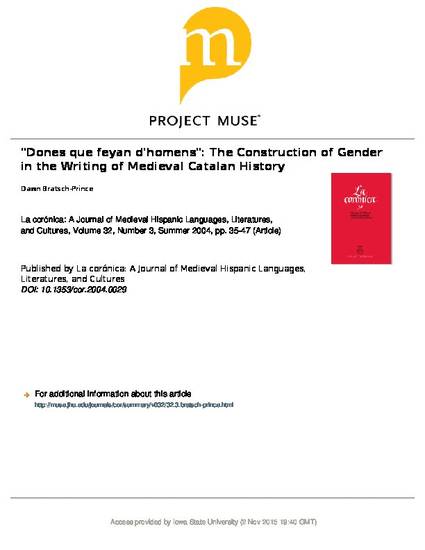
In the fourteenth-century Crown of Aragón, society considered a "good" woman, regardless of social class, to be a silent one who restricted herself to the domestic duties of the home. Once married, a good wife was to be chaste, bear many offspring, educate her children, manage the household, act piously, and uphold the good name of the family in all that she did.1 Equally important was her obligation to serve as peacemaker and alliance builder, both inside and outside of her immediate family, by virtue of "her docility and capacity for submission" to her husband and his kin (Vecchio 109). Women of the nobility had additional expectations to fulfill. On occasions they were "expected to participate in political councils and their advice was often sought and considered in planning familial strategies and alliances" (Lois L. Huneycutt 189). A nobleman's wife was expected to serve as intercessor for those petitioning favors from her husband. By choosing an appropriate woman in marriage, a nobleman sought to ensure the loyalty of his vassals, augment his landed holdings, and polish his foreign policy. In sum, it was widely held that a woman's honor resided in her submission to her male kin, and her physical and verbal chastity.
Available at: http://works.bepress.com/dawn_bratsch-prince/5/

This article is from La corónica: A Journal of Medieval Hispanic Languages, Literatures, and Cultures 32 (2004): 35, doi:10.1353/cor.2004.0029 Posted with permission.